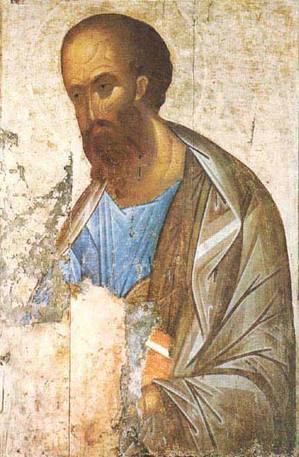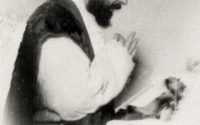Yesterday’s Antiphons

Yesterday, in the traditional calendar, was the Commemoration of Saint Paul, a way of giving the Doctor of the Gentiles equal honour with Saint Peter, the Prince of the Apostles. Whereas the antiphons of June 29th focused on Saint Peter, yesterday’s antiphons focused on Saint Paul. I had great joy in singing them at Lauds. They give one an unshakeable hope in the all-sufficient grace of Christ.
Ant. I have planted, * Apollos watered, but God gave the increase, alleluia.
God gave Paul the seed that he planted: the living seed of the Word. “So shall my word be, which shall go forth from my mouth: it shall not return to me void, but it shall do whatsoever I please, and shall prosper in the things for which I sent it.” (Is 55:11). God gave Apollos the water by which he watered that seed. “You shall draw waters with joy out of the saviour’s fountains” (Is 12:3). Finally, God gave the increase. So it is in all our undertakings. God works for us, in us, through us, and by us, as He works in all things turning them to the good of those who love Him. “We know that to them that love God, all things work together unto good, to such as, according to his purpose, are called to be saints” (Rom 8:28).
Ant. Most gladly therefore will I rather glory * in mine infirmities, that the power of Christ may rest upon me.
To glory in one’s infirmities is to open them wide to the grace of Christ. Our Lord deploys His virtus — HIs divine power — in the arena of one’s infirmities. Infirmities of body, mind, or spirit, are no obstacle to holiness, provided that one surrenders them to Christ. He enters them like a warrior to claim them for Himself. There is no infirmity — no weakness, brokenness, or personal history — in which the power of Christ cannot be unleashed to the greater joy of the Church and the greater glory of the Father.
Ant. The grace of God * which was bestowed upon me was not in vain, but his grace abideth ever in me.
The grace of God is the source of all fecundity. Where the grace of God is welcomed there remains nothing sterile, nothing cold, nothing lifeless. “I am come,” says the Lord, “that they may have life, and may have it more abundantly” (Jn 10:10). In Christ, Saint Paul was fully alive, and this to the point of spiritual generativity. He call the Galatians, “my little children, of whom I am in labour again, until Christ be formed in you” (Gal 4:14). To the Corinthians he writes: “In Christ Jesus, by the gospel, I have begotten you” (1 Cor 4:15).
Ant. In Damascus * the governor under Aretas the king was desirous to apprehend me ; by the brethren in a basket was I let down by the wall, and so escaped I his hands, in the Name of the Lord.
The fourth antiphon makes it clear that no one, not even the great Apostle of the Nations, can dispense with the help of the brethren. It was “the brethren” who planned and carried out Paul’s escape from Damascus. The humble man will accept the care of the brethren. He will trust them to the point of allowing himself to be lowered over a wall in a basket! He who would minister alone, refusing the ministrations of others, remains a prisoner.
Ant. Thrice was I beated with rods, once was stoned, thrice I suffered shipwreck, for the Name of Christ
Suffering is inherent to the Christian life. While some are called to endure great sufferings in the public eye, most of us are called to bear with little sufferings in the hiddenness of what Saint Thérèse called “the little way.” Mingled into the Passion and Death of Christ as the drop of water is mingled into the wine of the chalice, the sufferings of ordinary folk, especially those sufferings that are hidden from the eyes of the world, become a participation in the Sacrifice of the Cross.

